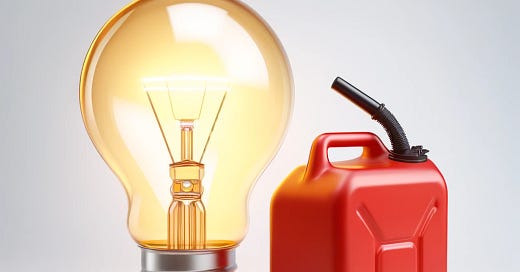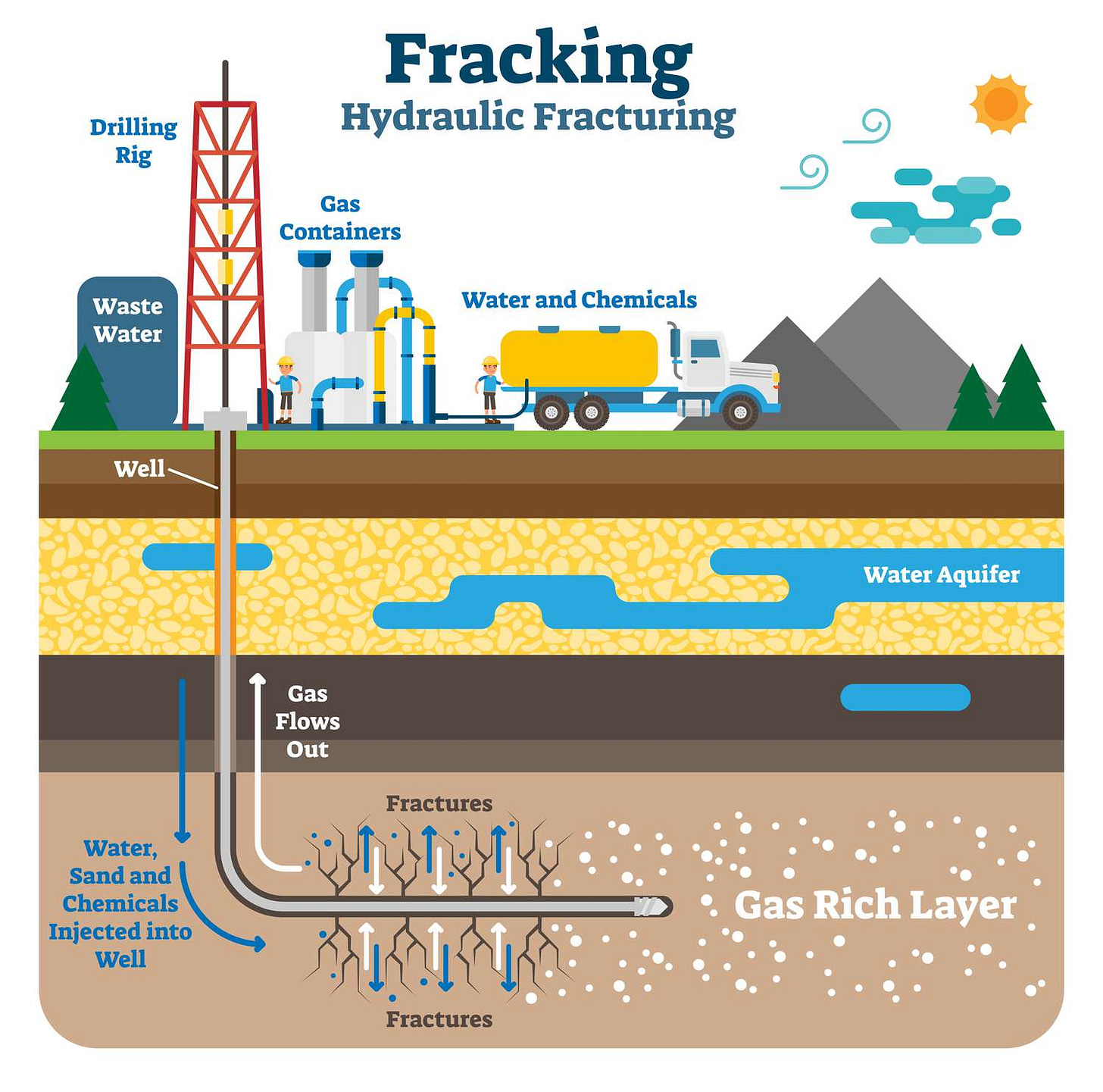What would you rather discover: a new oil well that doubles the amount of your inventory, or a way to double your gas mileage? Either discovery would double the distance you could drive your car.
Crude oil was actually considered a liability before Yale chemistry professor Benjamin Silliman Jr. discovered how to refine it into a variety of valuable products using fractional distillation (a technique developed by his father Benjamin Silliman Sr.) Silliman Sr. is considered by many to be the father of American chemistry. He founded the American Journal of Science and was a founding member of the National Academy of Sciences.
In 1855 Silliman Jr. was hired by Pennsylvania entrepreneur George Bissell to analyze the possibility of using petroleum as a fuel for illumination. Silliman noted in his report :
Your company have in their possession a raw material from which, by simple and not expensive process, they may manufacture very valuable products. It is worthy of note that my experiments prove that nearly the whole of the raw product may be manufactured without waste, and this solely by a well-directed process which is in practice in one of the most simple of all chemical processes.
With this report Bissell was able to create a corporation and raise the money to start drilling for oil. He hired Edwin Drake and put him in charge of drilling a well, and after many setbacks Drake’s crew struck oil in quiet rural Titusville, Pennsylvania on August 27, 1859. The scenery of Titusville changed almost overnight. Oil derricks and towns filled with get-rich-quick speculators filled the newly named Oil Creek.
One barrel of oil is 42 gallons and 7.46 barrels is one ton. The world currently has around 230 billion tons, or 1.7 trillion barrels in proven reserves.
What is also interesting is that the more oil we use, the more we discover. Reserves have increased 158 percent from 93 billion tons in 1980 to over 240 billion tons today. This occurred at the same time global population increased 82 percent from 4.4 billion to over 8 billion today. For every one percent increase in population, oil reserves have increased 1.92 percent. We really have no idea how much oil we have or its potential uses.
Finding more oil is great, but finding more knowledge about how to discover more oil is even better. We use up the oil but we don’t use up knowledge. In fact, the more knowledge you consume the more it grows. These experiences illustrate the truth that it is knowledge that transforms atoms into resources. In fact, atoms without knowledge have no economic value.
After peaking at 9.6 million barrels per day in 1970, annual U.S. crude oil production flattened and then generally declined for decades to a low of 5 million barrels per day in 2008. Then U.S. entrepreneurs and petroleum engineers discovered two technologies: hydraulic fracturing and horizontal drilling.
U.S. crude oil production reversed and has increased steadily since.
Because of these entrepreneurs and innovators, the United States has become the largest producer of crude oil on the planet.
How about miles per gallon? The top-selling car in 1980 was the Oldsmobile Cutlass. Gas mileage on this vehicle averaged 20 miles per gallon (17 city/23 highway). By 2023 the Honda CR-V claimed the title as the most popular two-wheel drive car. The CR-V reported mileage at 31 miles per gallon (28 city/34 highway). This represents an increase of 55 percent over this 43-year period. We also note that the time required for a blue-collar worker to earn the money to buy a Cutlass in 1980 is about the same as it is today for a much safer and more comfortable CR-V.
America has energized the world by giving its citizens the freedom to discover more oil and create more knowledge. We enjoy a virtuous circle as more knowledge gives us more oil and more oil gives us more knowledge. We discover new knowledge with every new oil well we drill. Human freedom truly is our most valuable resource.
We explain and empirically demonstrate why more people with freedom means much more resource abundance in our new book, Superabundance, available at Amazon. You can read more at superabundance.com. There has never been a better time to create more life.
Gale Pooley is a Senior Fellow at the Discovery Institute and a board member at Human Progress.










@Gale Pooley, this is the power of superabundance. The more ideas we create, the more effectively and efficiently we can use the limited atoms that we have available to us.
The more our technology advances, the more we evaporate the physical world
Good info!